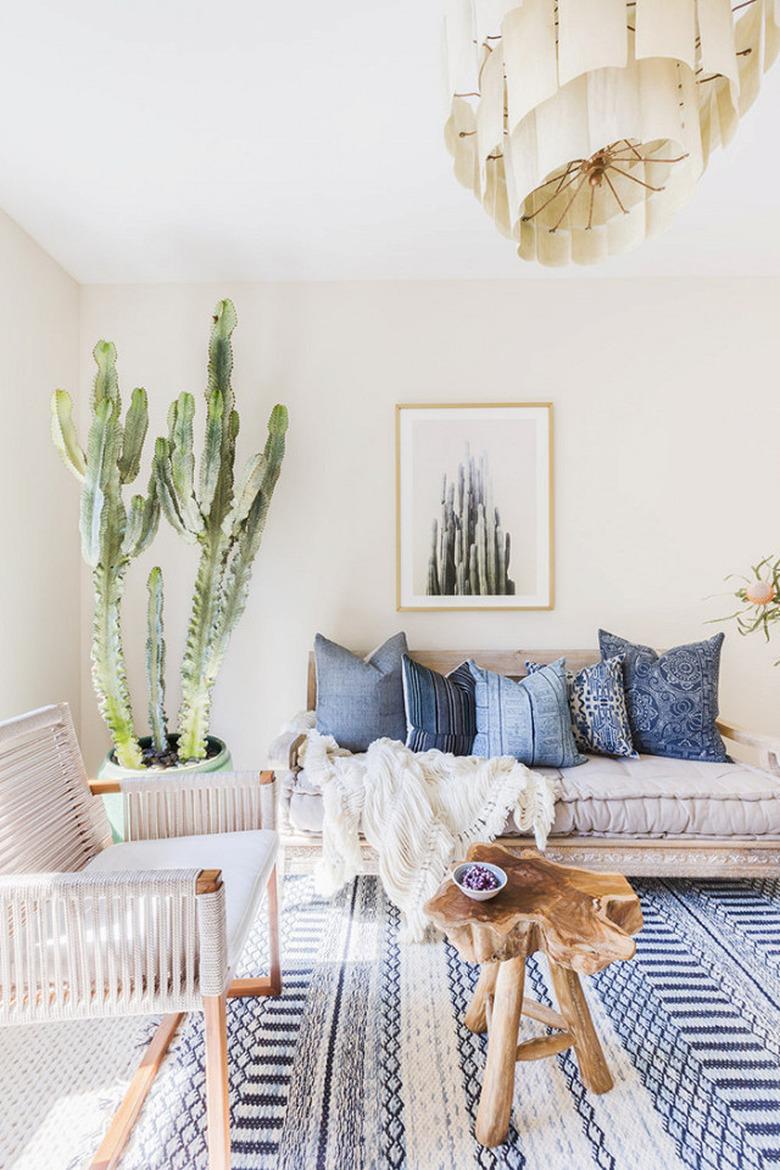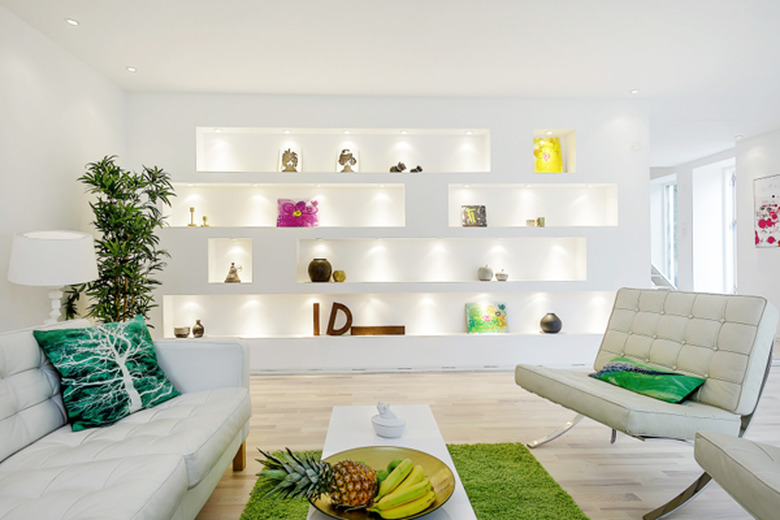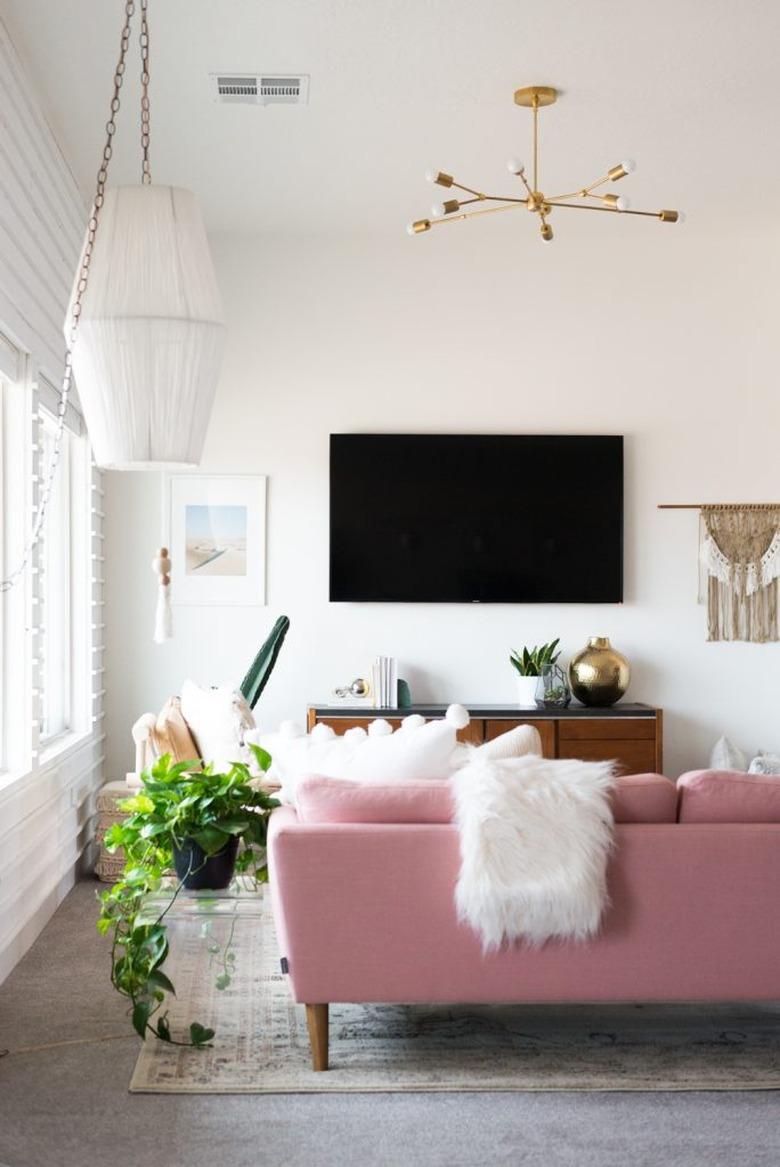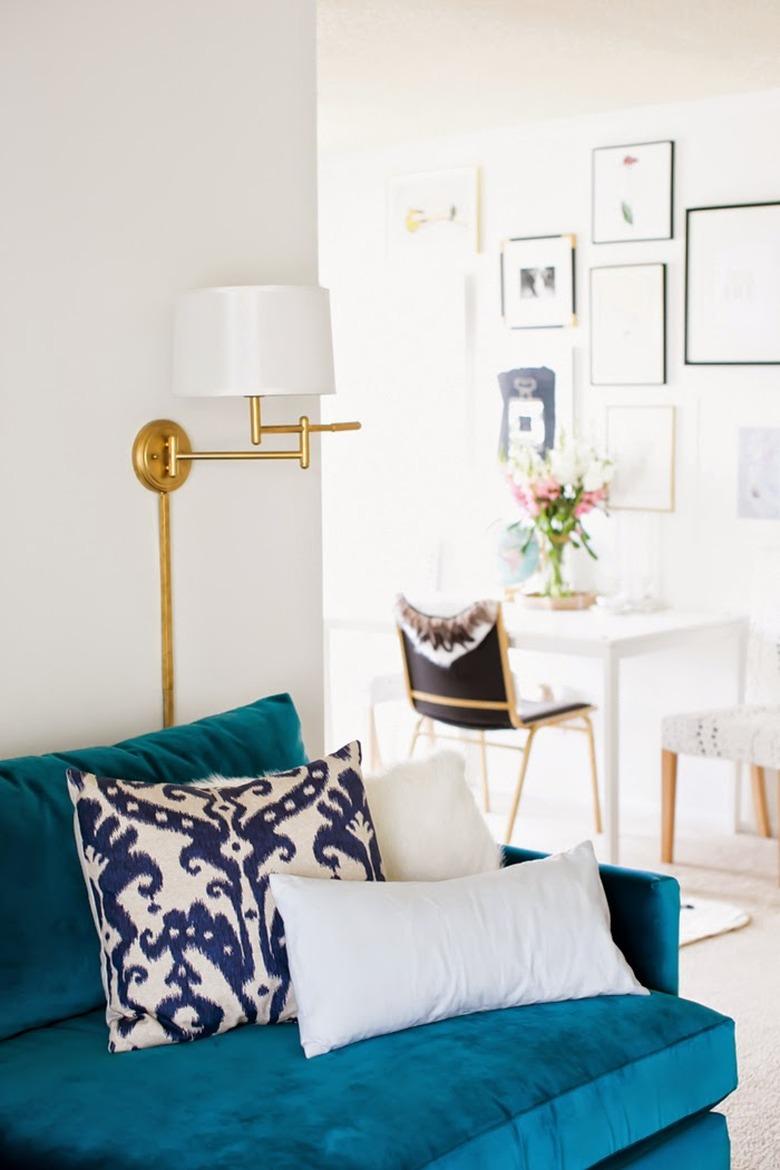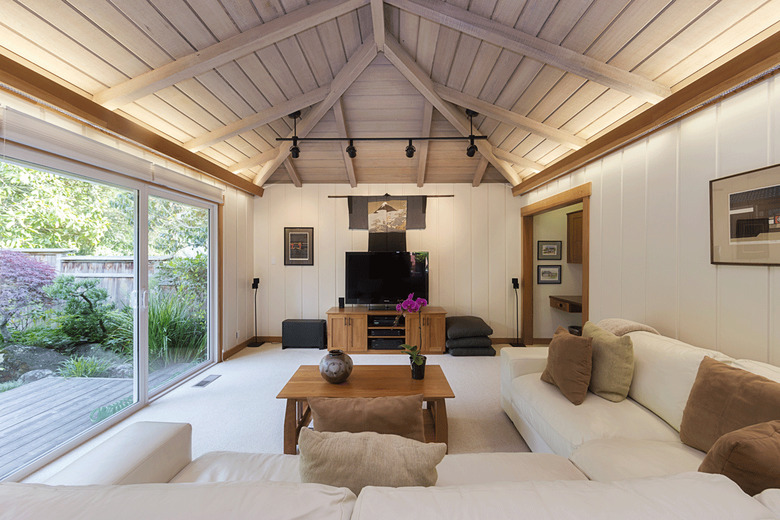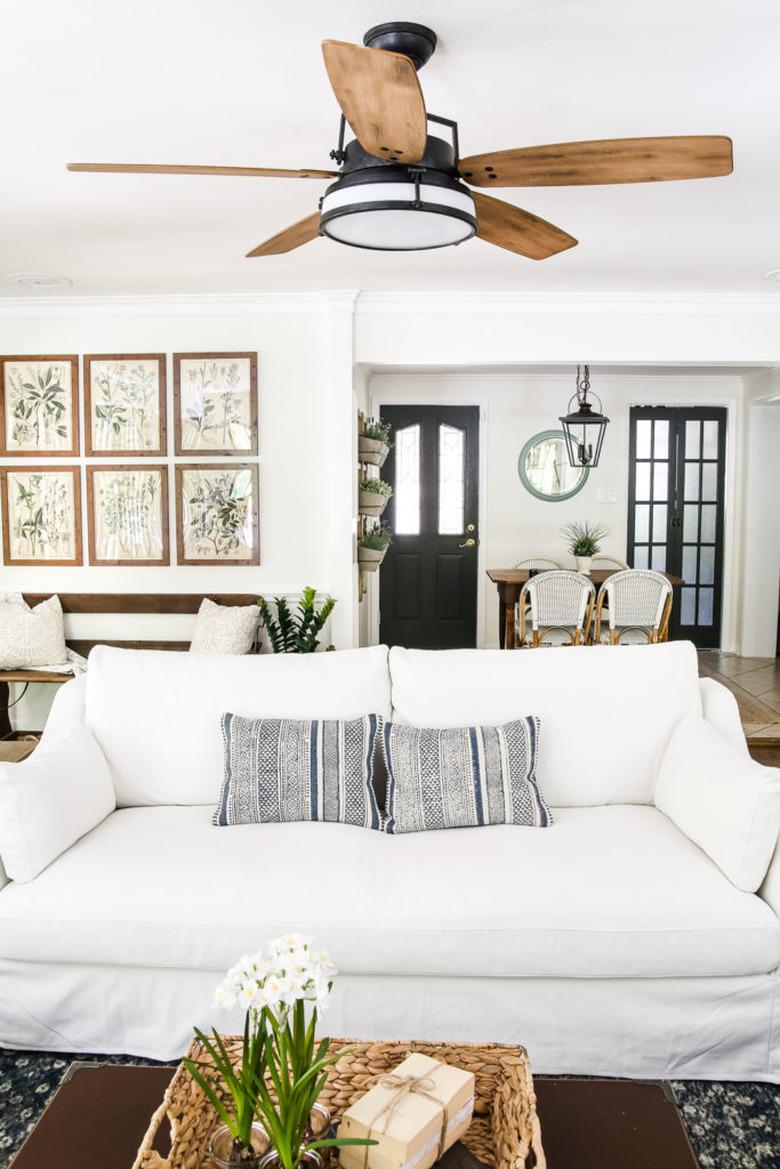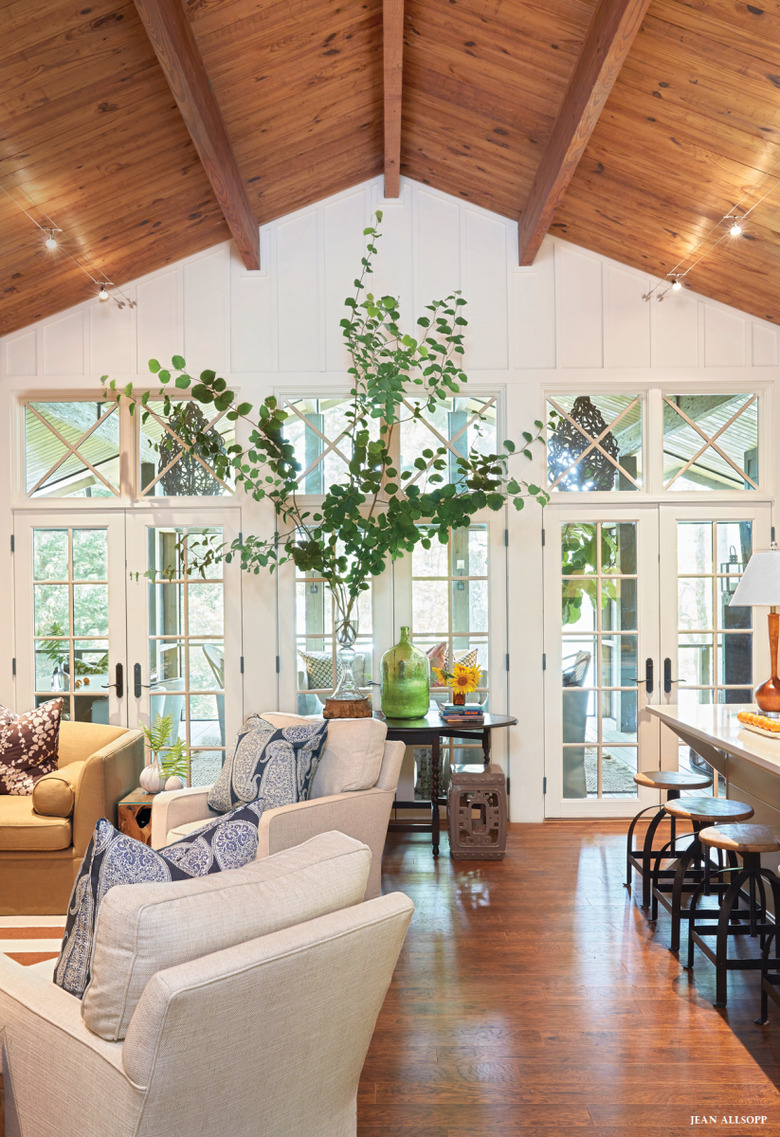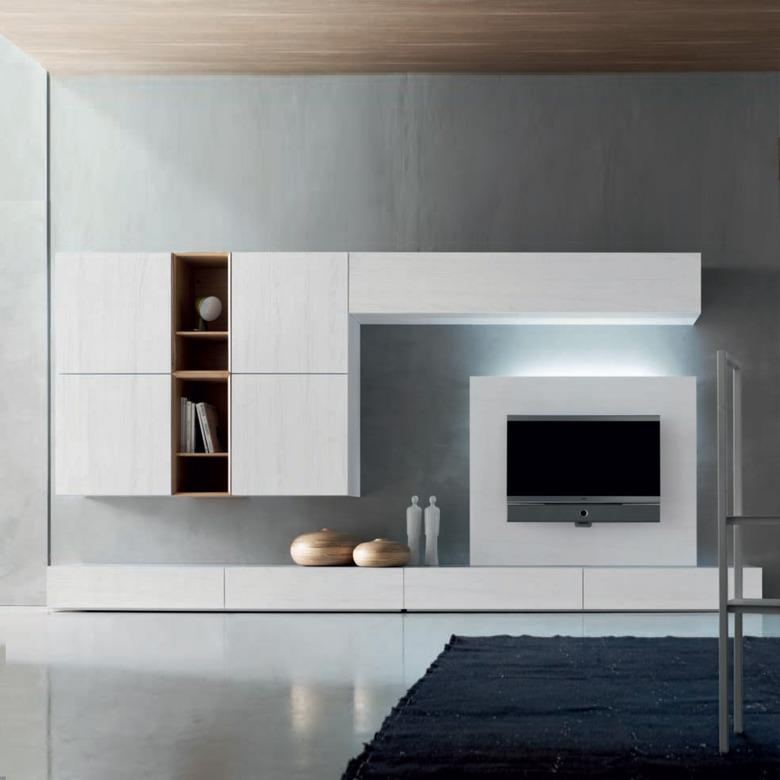7 Living Room Lighting Tips
Living rooms can be tough to light because they're one of the largest rooms in the home. There's just a whole lot of territory to cover. While there isn't one quick-fix answer to a perfectly lit living room, these seven tips can help you get started.
1. Incorporate accent lighting.
Accent lighting is useful for highlighting special features of your living room such as art or a fireplace. These lights can be found under cabinets or recessed in the ceiling. Accent lighting is the most common form of directional lighting, which means it has small openings, ranging between three to five inches, to create a focused beam of light that highlights something beautiful.
2. Incorporate decorative lighting.
Lighting doesn't have to be all practical. Impactful pieces such as chandeliers or pendants add the the mood of your space while also providing a bit of light. Learn more about how you can incorporate decorative lighting here.
3. Incorporate task lighting.
Task lighting quite simply allows you to comfortably complete a task (such as reading) by providing proper illumination. While these lamps are around for practical reasons, it doesn't mean they can't be stylish, too. Here are some sophisticated options.
4. Try out ceiling accent lighting.
While it's not something you see every day, ceiling accent lighting, or lighting that goes around the perimeter of your tray or vaulted ceiling, can really add something special to your space.
5. Invest in lighting that's multifunctional.
Ceiling fans don't have to be ugly. Farmhouse ceiling fans are on-trend, for example, yet remain practical. They feature rustic wood and clean, traditional lines, rather than old-fashioned white plastic.
6. Make use of dimmers.
Dimmers set the mood you want for your space, and shouldn't be looked over. Curious if a dimmer can be added to your light fixture? Find out here.
7. Consider bias lighting.
Looking at electronics in a dark room can strain and fatigue your eyes. Some like to place a light behind their TV to reduce this strain. This addition is called bias lighting. There are specific TV backlighting kits available for purchase, or you can simply place a lamp behind your television.
